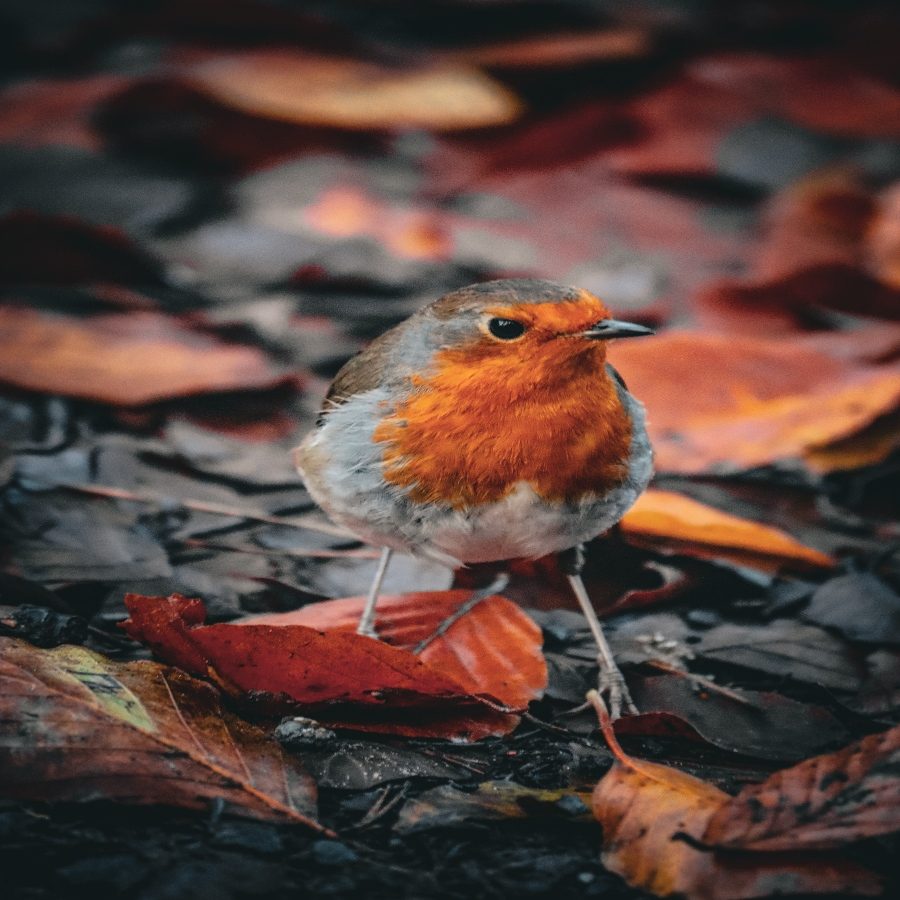
The Nomenclature of Flight
At dusk, we snuck into the backyard and planted birdseed by the drive. This was so robins would sprout out of crabgrass and dirt, talons curled around rock, wings opened like palms. Our mother glared from the door, said flight cannot be born from earth. Nothing grows from its opposite, but we ignored her because this couldn’t be true. After all, we emerged from the hollows she left behind, one twin for each fist, each hole punched through the kitchen wall. Our bodies birthed from negative space. That was what it meant to be her daughters: to grow around the spaces she made, to be her reflection split in two.
So we stole sunflower seeds from the pantry and tucked them into the earth, dirt gritting under our nails. We had to grow the birds we harvested because that was the only way to tame them, leash their flight, and brand it with a name. It would be harder to control something wild, and we didn’t know if we could catch them fast enough to name, to give them the only weapon we could yield: identity’s collapse into sound, collecting on the tongue like firepowder before the shot.
Our mother had taken two weeks to name us, delaying ownership as our bodies crumpled, small as the birth certificates on the desk. All the names she’d prepared were male—Andrew, Michael, James—sturdy enough to withstand her pride. I wanted someone strong, she said as she ironed our father’s shirts, someone who would carry their name beyond themselves, solid in the lineage of blood. Steam fogged her face and blurred it into a single exhale. She always spoke like she was ending a breath, words balanced on the edge of speech. One night, I pried open her mouth to see if her tongue was cut into a comma. Maybe that was why she lived in a pause, suspended between one body and the next, unsure how to proceed from mother to child. Maybe that was why she didn’t know how to pass on her name, its syllables leaking through her lips as we took our father’s instead. But her tongue lay in her mouth, whole and unslit. When I released her jaw, her teeth clacked together and she awoke, spitting in my face.
No matter how many boys she prepared for, we tumbled forth in our girlbodies, four fists closed, our crime twinned in the doctor’s gloved hands. The names our mother finally gave us began with sh: Shirley, Sherry. She wanted the sound of shushing, silence engraved in our throats, but we likened them to freshly honed knives. Metal whispering, emerging from water and stone. The way our father wielded his voice like a blade, shredding air around our heads. The way we sharpened our names against teeth and spat them across the yard, voices high and saliva-bright.
In the afternoon, we competed the distance we could fly our names. Positioned ourselves against the house and aimed for the road, cars whipping our hair into a storm. We took turns and counted how many selves we could seed in gravel, syllables dissipating against dirt. How many leaves we could cut with breath, sliced along their spines, broken halves like feathers released to the earth. Once, I held up a leaf and replaced half my sister with its broken blade, her limbs emerging around the other side. Her body, growing out of green. This was how we home-grew ammunition, vowel by splintered vowel, birdseed like shrapnel in our palms.
At dawn, we stole into the yard where robins flapped their dusty wings, talons rooted to the ground. We snuck on feet choked of sound. Locked hands around their necks and pulled them from the earth, burying their wings against our chests. We could only catch two a day—the remaining birds rushed into the sky when we arrived—but we knew to take what we could and wait. After all, we learned patience before we learned our names.
We huddled against the back of the house and held the birds at arms-length, their necks strangled in our fists. The scientific name for American robins was Turdus migratorius, but it was marred by too many centuries to use. To own something, you had to name it yourself, so we readied our mouths. Baptized birds in sound as their throats twisted, too choked to object. To reject our claim on their bodies, their flight. They should feel lucky, we said, that we named them the morning they appeared. We knelt and readied our knives, so sharp they barely whispered against flesh. Their throats opened red and warm, a cry that bathed our hands in blood.
Nova Wang is probably thinking about ghosts. Her writing appears in publications including Gigantic Sequins, Up the Staircase Quarterly, and Whale Road Review, and she tweets @novawangwrites. You can find more of her work at novawang.weebly.com.
Submit Your Stories
Always free. Always open. Professional rates.
